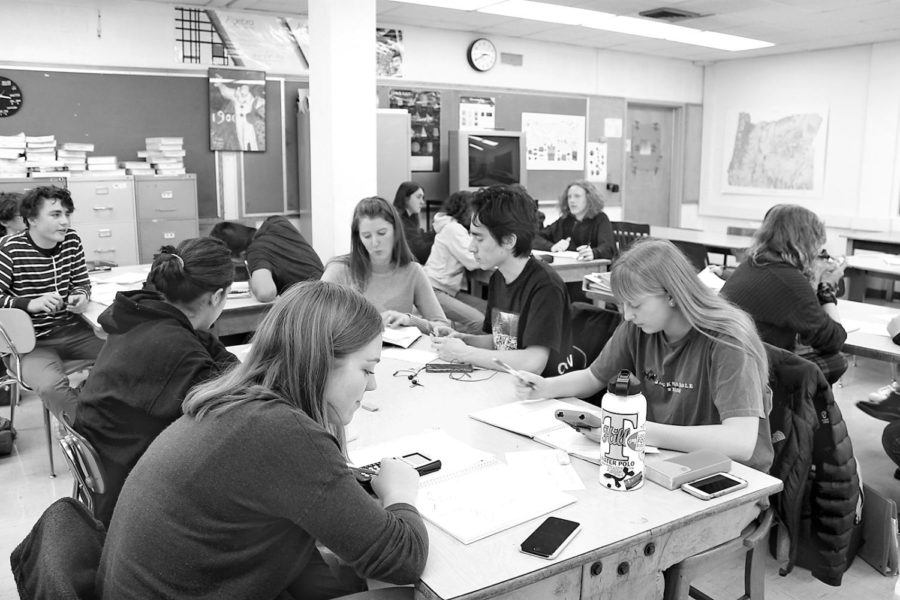Gender disparity in classes raises concerns
Gender Gaps In IB Classes
International Baccalaureate classes are a norm at Lincoln. Even students who don’t commit to full IB typically enroll in one or two IB classes in their preferred subject of interest. Two common subjects students choose to test in are Math and English courses.
Yet taking this classes might have an additional, unintended consequence – entrenching stereotypes and implicit biases. Some students have begun to notice a gender gap in the IB English and Math classes, and worry it could have lasting effects.
According to senior Amelia Diana, her junior year in IB English HL, there were only two males in the class.
“My teacher would often address the class as ‘ladies’ which led to a weird dynamic,” said Diana.
On the opposite side of the spectrum, Senior Xander Gore, who takes IB Computer Science, has noticed there are no females in that class.
According to the IB website, across IB as a whole, 64 percent of full IB diploma graduates are female and 36 percent are male.
Further, a report done by the Organization for Economic Cooperation and Development girls tend to score higher than boys in reading, which the O.E.C.D. considers the most important skill, essential for future learning.
And according to the US Department of Education’s 2015 report, “Gender Differences in Science, Technology, Engineering, and Mathematics (STEM) Interest”, “In general, a higher percentage of male than female high school graduates expressed interest in mathematics, and the same was true for interest in science.”
The gender imbalance may have significant consequences.
Senior Lea Kapur, a full IB student, believes that “the female dynamic in English classes is really harmful and perpetuates stereotypes.”
Senior Will Duffy said that in general, he has not noticed the ratio between males and females in his IB classes, but when he does see it, he realizes the effect is has.
“The only time I noticed a significant difference was sophomore year in my accelerated English class, when we were talking about ‘Of Mice and Men’. The girls were very passionate, and that’s when I noticed there were a lot more girls in the class,” says Duffy.
Lincoln IB Math teacher Adam Bander has noticed a larger number of boys than girls in his classes and says that, “having a balance in classes is important because it speaks to systemic gender equity, which should be a goal. The IB classes are considered more ‘advanced’ and their demographics should represent those of the entire population,” says Bander.
These gender imbalances in AP and IB classes may be the result of societal pressures.
Senior Isabel Kirschner acknowledged that there were more females in her IB English courses and theorizes that, “females are expected to value the arts and literature–the more emotional studies. While males are expected to be stronger in science and math because they are expected to be breadwinners and have high-paying careers in medicine or engineering.”
She believes that the gender disparity is more of a “societal issue” than anything else.
Kirshner suggests that what would really help would be, “If any child regardless of gender could be expected to have a doll, or a chemistry set, or science-fiction books, then perhaps there wouldn’t be this invisible barrier felt by everyone that certain subjects are more ‘masculine’ or ‘feminine’ than others. Ideally, knowledge and success should be open to everyone.”

